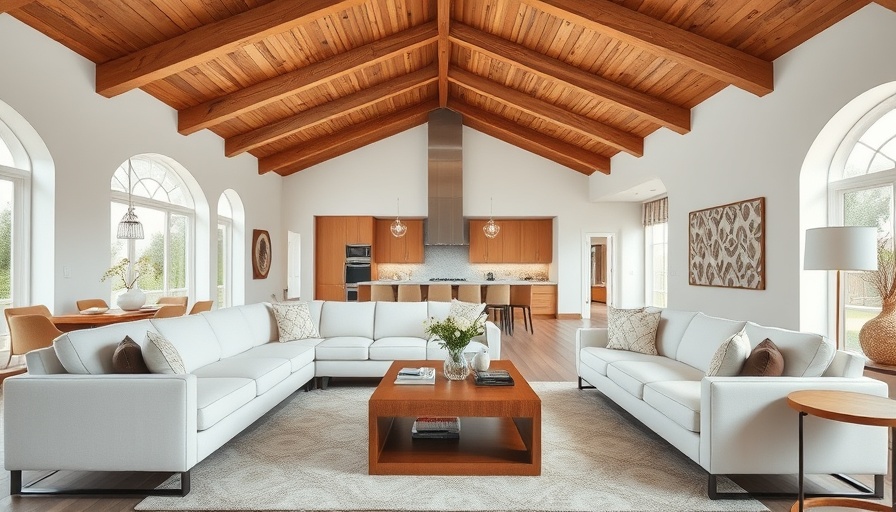
Understanding the Value of Home Staging Before Selling
As you prepare to list your home, one critical consideration arises: Should you stage your house? Not only does staging enhance visual appeal, but it significantly influences buyers' perceptions—helping them to envision the space as their future home. Studies show that staging can increase the number of offers you receive while maximizing the sale price. In fact, staged homes often sell faster than their unstaged counterparts.
The Cost of Staging: What to Expect
Wondering how much it costs to stage a house? The average expense hovers around $1,800, but can range from $600 to $4,000, dependent on factors including the size of your home and whether it is vacant or occupied. This investment, while seemingly steep, may ultimately yield greater returns by appealing to a wider audience.
Breaking Down the Staging Costs
When budgeting for home staging, several components come into play:
- Consultation Fees: Expect to pay around $150 to $600 for an initial design consultation, typically lasting two hours.
- Room Staging: Staging individual rooms can set you back between $300 and $700, with costs rising for more rooms.
- Hourly Charges: Some stagers charge based on time, usually ranging from $25 to $150 per hour.
- Project Fees: Average project costs land between $800 and $1,000, excluding furniture rentals.
- Furniture Rental: If you're staging a vacant home, rental fees may cost $500 to $600 per room.
- Decluttering Services: A flat fee of approximately $800 is standard for decluttering and rearranging personal items to create a more presentable space.
- Maintenance Costs: Additional repairs like painting, cleaning, or changing light fixtures might be recommended by your stager, impacting overall costs.
Does Staging Really Help?
The short answer is yes! Staging your home can make a substantial difference not just in attracting buyers, but also in increasing your sale price. According to the National Association of Realtors, staged homes sell for up to 10% more than unstaged homes. In addition, they tend to sit on the market for a shorter duration, giving sellers an edge in a competitive real estate landscape.
Local Trends in Home Staging
Particularly in bustling markets like Baltimore, homes that are well-staged stand out significantly. The combination of an effective presentation and strategic pricing can lead to swift sales and potentially multiple offers, an outcome that benefits both sellers and buyers looking for their dream home.
Making it Work for Your Budget
While staging might seem out of reach, there are several practical tips to engage in cost-effective staging. Consider handling minor improvements yourself, like decluttering or painting, to save on the budget. Moreover, opting for a consultation with a stager who can suggest what to focus on can dramatically cut costs.
Your Next Steps
If you're contemplating selling, it’s essential to weigh the potential benefits of staging your home against the costs. A well-decorated space can inspire buyer enthusiasm, making your property more enticing and boosting your final offer. Start by seeking a consultation and create a plan that aligns with your timeline and budget.
Every homeowner aims for a successful sale. By staging your home effectively, you can ensure that your property not only stands out on the market but also fetches the highest possible price. Get ready to put your best foot forward as you embark on this exciting journey!
 Add Row
Add Row  Add
Add 




Write A Comment